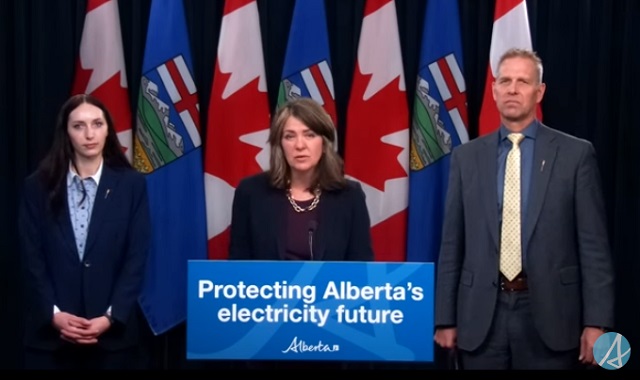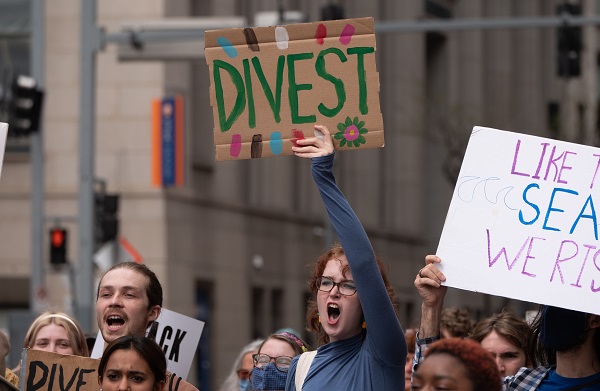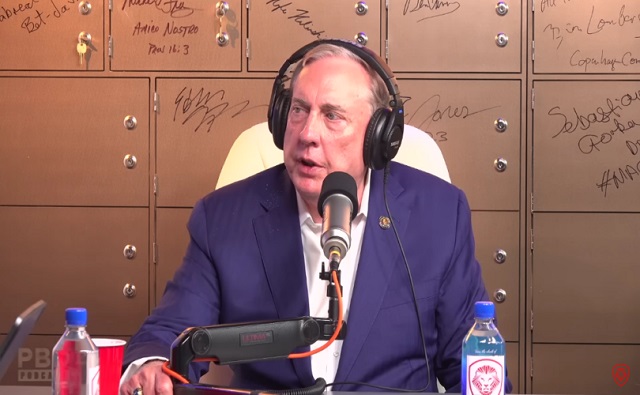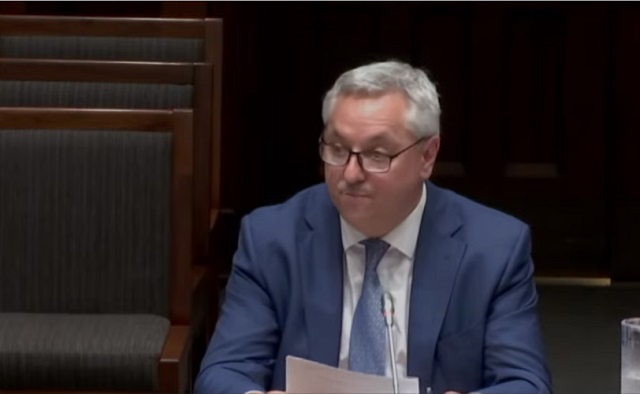Alberta
What the World Needs Now is More Pro Bono

July 14, 2020
What the World Needs Now is More Pro Bono
Lawyers and the legal community use their performance skills to bring awareness and raise funds to support access to justice for our vulnerable population during the Covid-19 pandemic.
The Alberta Civil Trial Lawyers Association (ACTLA) is staging a virtual Public Awareness Campaign partnered with United Way. Major supporters include the Canadian Bar Association – Alberta Branch and the Legal Archives Society of Alberta. The show is called Laywers Vs Talent: A2J – Virtual Edition. Here’s a link to the lineup. You can watch by simply making a donation. The United Way is helping out so it’s a very secure and safe procedure. Click here to get your exclusive link. (You will receive an email with the link prior to showtime.)
COVID-19 caused cancellation of fundraising events (e.g. Battle of the Bar Bands-Calgary) within the profession where proceeds went to Pro Bono legal advice clinics. The Alberta Bar decided to innovate and create the virtual event for this Thursday, July 16th, from 6:00 PM to 8 PM (MDT) to raise a “behind the scenes” Awareness. Due to the Pandemic, Pro Bono clinics require technology for remote meetings or remote court attendance or require supplies for their clients such as masks and shields to attend meetings or attend court if people are forced by subpoena or otherwise need to attend.
Donna Purcell, member of the ACTLA COVID-19 Emergency Response Team said “We were going to call our event ‘lawyers got talent’ but one lawyer objected saying Simon Cowell would complain. Well what about ‘lawyers got no talent’? No, he might still complain, maybe try Lawyers vs Talent” and the seed was sown to invite professional talent, with entertainers from the United States, Mexico, Europe, Asia and South America under the Global A2J Alliance banner. The campaign is meant to highlight the need for everyone to protect the Rule of Law for vulnerable populations.
Forecasts for Alberta include 25% unemployment. The profession is concerned about providing Pro Bono services given the anticipated domestic situations, personal bankruptcies, foreclosures and evictions flooding antiquated justice systems.
“The legal profession and our judiciary have decided to lead the way in ensuring innovative access to justice for our growing vulnerable populations and all Albertans”, notes Purcell, “And we can’t only work for free, that is called being unemployed. And no lawyer jokes please, we might not get them. Grab a Shaq-a-roni, set up a Zoom after party, and come enjoy the entertainment, including some pros who know what they are doing and learn from our feature presenters and feature reporting.”
The show has many serious moments as well. You will hear from Rumana Monzur, Counsel at Department of Justice, Canada. In June 2011, she was brutally attacked and blinded by her husband at the time, Hasan Sayeed Sumon, while visiting in her home country of Bangladesh. As well, you will meet Maria Mitousis, Principal, Mitousis, Lemieux, Howard Law Corporation. Maria became national news when in the summer of 2015, she dropped into her office and opened a package that was on her desk. In the package was a bomb, and in the ensuing explosion, Maria lost a hand. Hers is a tragic but inspiring story.
A committee will decide where funds that are raised will have the most impact and includes consulting the United Way’s The Social Impact Lab, a platform to research, create, and test new services and business models. The goal is toensure the impact on organizations who support vulnerable populations through the legal sector is maximized. It is also hoped that public awareness of the out-of-date state of the justice system will encourage a provincial and national discussion.
A minimum $50 donation to United Way receives the Premiere Access link; donate any amount for an after the event link.
For more information and to donate, sponsor or to purchase tickets to the event, visit www.lawyersvstalent.com.
Remember, the show goes live Thursday, July 16th, at 6 PM.
Disclosure: Todayville is a proud partner in the production of this innovative program.
Read more on Todayville.com.
Alberta
Alberta’s baby name superstar steals the show again

Olivia and Noah continue to reign as top baby names in 2023.

Olivia and Noah are once again topping the lists in Alberta, highlighting the enduring appeal of the names. Olivia maintains a record setting streak as the most popular girls name in Alberta for the 11th year in a row, while Noah remains top pick for boys’ names for a fifth consecutive year.
“Congratulations to those who welcomed a new addition to their family in 2023. Bringing a child into the world is a truly momentous occasion. Whether the name you chose was in the top 10 or one of a kind, these names are only the beginning of the endless possibilities that lie ahead for each child. I look forward to supporting this generation by ensuring Alberta remains a place where they can thrive.”
In choosing names for their new arrivals, parents appear to have found inspiration in a variety of places. Some parents may have been inspired by plants like Ivy, Rose, Juniper, Poppy, Azalea or in nature like Wren, River, Meadow and Flora.
Others may have taken a literary approach with names like Bennett, Sawyer, Juliet and Atticus or been inspired by notable names from religious texts like Eve, Noah, Mohammed and Gabriel.
As always, popular culture may have had an influence through famous musicians (Aretha, Lennon, Presley, Hendrix), athletes (Beckham, Crosby, Evander), and even fairytale princesses (Tiana, Jasmine, Aurora, Ariel, Belle).
Quick facts
- A total of 47,263 births were registered in Alberta in 2023
- Notable changes to the early 2020s lists:
- Evelyn rose to seventh place on the girls’ names list after tying for 19th place in 2022.
- Emily returned to the top 10 list for girls after taking a short break in 2021 and 2022 after a 10-year stretch in the top 10 that started in 2010.
- Violet has cracked the top 10 list for the first time in at least four decades, tying with Ava and Emily in ninth place.
- The top 10 boys’ names remain the same as last year but with a slight change in order.
- Historically, girls’ names that held the No. 1 spot for the longest consecutive time period include:
- Olivia: 11 years (2013-2023)
- Jessica: six years (1990-1995)
- Emily: five years (1998-2002)
- Historically, boys’ names that held the No. 1 spot for the longest consecutive time period include:
- Ethan: nine years (2001-2009)
- Liam: seven years (2010-2016)
- Matthew: five years (1995-1999)
- Noah: five years (2019-2023)
- Parents have up to one year to register their child’s birth. As a result, the list of 2023 baby names and birth statistics may change slightly.
Boys’ names and frequency – top 10 names 2018-23
(In brackets is the number of babies with each name)
| Place | Boy Names (2023) | Boy Names
(2022) |
Boy Names (2021) | Boy Names (2020) | Boy Names (2019) | Boy Names (2018) |
| 1 | Noah (276) | Noah (229) | Noah (274) | Noah (239) | Noah (275) | Liam (225) |
| 2 | Liam (181) | Liam (176) | Jack (220) | Oliver (229) | Liam (234) | Oliver (212) |
| 3 | Oliver (178) | Theodore (173) | Oliver (208) | Liam (206) | Oliver (225) | Noah (199) |
| 4 | Theodore (173) | Oliver (172) | Liam (198) | Benjamin (182) | Ethan (213) | Ethan (188) |
| 5 | Jack (153) | Jack (159) | Theodore (191) | William (178) | Jack (198) | Logan (182)
Lucas (182) |
| 6 | Henry (146) | William (146) | William (174) | Jack (169) | William (185) | Jacob (181) |
| 7 | Lucas (140) | Benjamin (138) | Ethan (162) | Lucas (163) | Lucas (174) | William (178) |
Girls’ names and frequency – top 10 names 2018-2023
(In brackets is the number of babies with each name)
| Place | Girl Names (2023) | Girl Names
(2022) |
Girl Names (2021) | Girl Names (2020) | Girl Names (2019) | Girl Names (2018) |
| 1 | Olivia (210) | Olivia (192) | Olivia (210) | Olivia (236) | Olivia (229) | Olivia (235) |
| 2 | Amelia (145) | Sophia (152) | Charlotte (166) | Emma (184) | Charlotte (188) | Emma (230) |
| 3 | Sophia
(138) |
Emma (149) | Ava (165) | Charlotte (161) | Sophia (181) | Charlotte (175) |
| 4 | Charlotte
(135) |
Amelia (133) | Emma (164) | Ava (159) | Emma (178) | Emily (164) |
| 5 | Emma (133) | Harper (125) | Amelia (161) | Sophia (151) | Ava (161) | Ava (161) |
| 6 | Isla (120) | Charlotte (117) | Sophia (137) | Amelia (145) | Amelia (159) | Abigail (153) |
| 7 | Evelyn (114) | Ava (115) | Isla (135) | Isla (133) | Emily (150) | Harper (150) |
| 8 | Chloe (101)
Violet (101) |
Isla (101) | Abigail (120)
Chloe (120) |
Emily (127) | Abigail (141) | Sophia (146) |
| 9 | Ava (99) Emily (99) |
Lily (100) | Evelyn (119) | Lily (123) | Hannah (137) | Amelia (145) |
| 10 | Hannah (98)
Hazel (98) |
Chloe (92) | Aria (112) | Abigail (114) | Elizabeth (124) | Elizabeth (130) |
Related information
Alberta
Alberta government should create flat 8% personal and business income tax rate in Alberta

From the Fraser Institute
By Tegan Hill
If the Smith government reversed the 2015 personal income tax rate increases and instituted a flat 8 per cent tax rate, it would help restore Alberta’s position as one of the lowest tax jurisdictions in North America
Over the past decade, Alberta has gone from one of the most competitive tax jurisdictions in North America to one of the least competitive. And while the Smith government has promised to create a new 8 per cent tax bracket on personal income below $60,000, it simply isn’t enough to restore Alberta’s tax competitiveness. Instead, the government should institute a flat 8 per cent personal and business income tax rate.
Back in 2014, Alberta had a single 10 per cent personal and business income tax rate. As a result, it had the lowest top combined (federal and provincial/state) personal income tax rate and business income tax rate in North America. This was a powerful advantage that made Alberta an attractive place to start a business, work and invest.
In 2015, however, the provincial NDP government replaced the single personal income tax rate of 10 percent with a five-bracket system including a top rate of 15 per cent, so today Alberta has the 10th-highest personal income tax rate in North America. The government also increased Alberta’s 10 per cent business income tax rate to 12 per cent (although in 2019 the Kenney government began reducing the rate to today’s 8 per cent).
If the Smith government reversed the 2015 personal income tax rate increases and instituted a flat 8 per cent tax rate, it would help restore Alberta’s position as one of the lowest tax jurisdictions in North America, all while saving Alberta taxpayers $1,573 (on average) annually.
And a truly integrated flat tax system would not only apply a uniform tax 8 per cent rate to all sources of income (including personal and business), it would eliminate tax credits, deductions and exemptions, which reduce the cost of investments in certain areas, increasing the relative cost of investment in others. As a result, resources may go to areas where they are not most productive, leading to a less efficient allocation of resources than if these tax incentives did not exist.
Put differently, tax incentives can artificially change the relative attractiveness of goods and services leading to sub-optimal allocation. A flat tax system would not only improve tax efficiency by reducing these tax-based economic distortions, it would also reduce administration costs (expenses incurred by governments due to tax collection and enforcement regulations) and compliance costs (expenses incurred by individuals and businesses to comply with tax regulations).
Finally, a flat tax system would also help avoid negative incentives that come with a progressive marginal tax system. Currently, Albertans are taxed at higher rates as their income increases, which can discourage additional work, savings and investment. A flat tax system would maintain “progressivity” as the proportion of taxes paid would still increase with income, but minimize the disincentive to work more and earn more (increasing savings and investment) because Albertans would face the same tax rate regardless of how their income increases. In sum, flat tax systems encourage stronger economic growth, higher tax revenues and a more robust economy.
To stimulate strong economic growth and leave more money in the pockets of Albertans, the Smith government should go beyond its current commitment to create a new tax bracket on income under $60,000 and institute a flat 8 per cent personal and business income tax rate.
Author:
-

 International2 days ago
International2 days agoUN attacks stay-at-home motherhood as ‘gender inequality’
-

 Censorship Industrial Complex23 hours ago
Censorship Industrial Complex23 hours agoDesperate Liberals move to stop MPs from calling Trudeau ‘corrupt’
-

 COVID-192 days ago
COVID-192 days agoWHO Official Admits the Truth About Passports
-

 Alberta2 days ago
Alberta2 days agoProvince to stop municipalities overcharging on utility bills
-

 Energy2 days ago
Energy2 days agoAnti-LNG activists have decided that they now actually care for LNG investors after years of calling to divest
-

 conflict1 day ago
conflict1 day agoCol. Douglas Macgregor: US is ‘facing disaster’ as it funds overseas wars while bankrupt
-

 Alberta1 day ago
Alberta1 day agoAlberta government should create flat 8% personal and business income tax rate in Alberta
-

 Business15 hours ago
Business15 hours agoFederal government’s ‘fudget budget’ relies on fanciful assumptions of productivity growth








